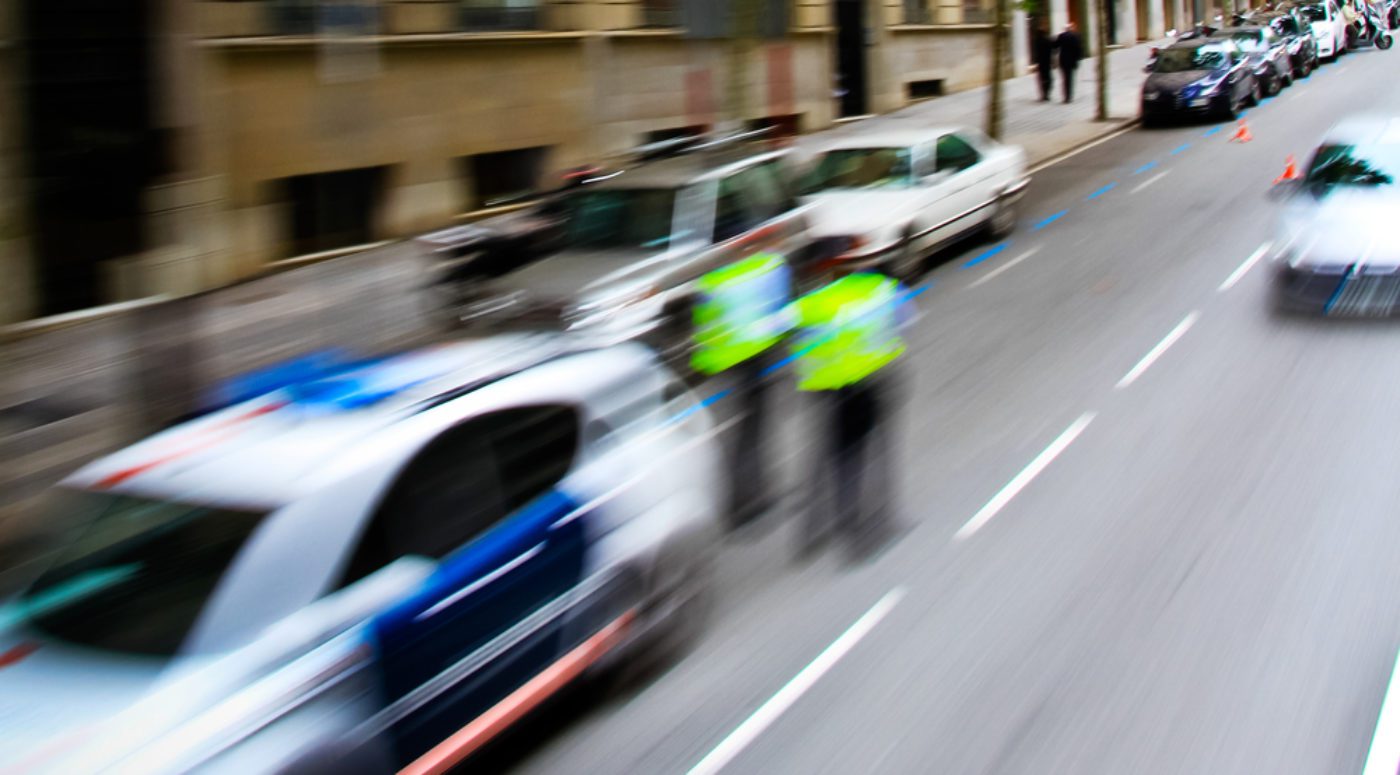

Having your property seized by the police is an upsetting and frustrating experience, especially when you may have legitimate concerns about whether or not you will be able to get it back. Police seizures can apply to just about any type of property, from luxury clothes and fine jewellery to mobile phones and even pets. If you are worried your property might be seized as part of an ongoing investigation, or you have actually had things taken away from you already, this article is for you. Here, we detail the general police powers of seizure and give breakdowns of rules surrounding common seizure targets, such as vehicles, mobile phones, property, cash, and personal items.
What are the general police powers of seizure?
When the police seize property, they are empowered to do so by several pieces of legislation. Generally speaking, police may seize property (personal items, vehicles, mobile phones, etc.) as part of an investigation if they have reason to believe that the property is relevant to that investigation. If they are investigating a robbery, for example, they may seize the suspect’s vehicle if it matches the description of one seen fleeing the scene. The power to do this comes from Section 19 of the Police and Criminal Evidence Act 1984 (PACE).
Under Section 19, an officer that is lawfully on the premises may seize property if they reasonably believe that the property has:
- been obtained in consequence of the commission of an offence; and
- that it is necessary to seize it in order to prevent it being concealed, lost, damaged, altered or destroyed.
Similarly, the officer may seize property if they reasonably believe that:
- the property is evidence in relation to an offence which they are investigating or any other offence; and
- that it is necessary to seize it in order to prevent the evidence being concealed, lost, altered or destroyed.
This gives the police relatively wide powers to seize whatever items they see fit in a lawful search of your property or premises.
Other pieces of legislation also give the police a right to search and seize your property. Section 352 of the Proceeds of Crime Act 2002 (POCA), for example, allows a judge to issue a search and seizure warrant to an officer in the event that a person is subject to:
- a confiscation investigation
- a money laundering investigation, or
- a civil recovery investigation.
Under Section 352(4)(b) POCA, that warrant would allow police to seize and retain any material found ‘which is likely to be of substantial value (whether or not by itself) to the investigation for the purposes of which the application is made’. This is a broad ranging power, and it could mean the police are allowed to take anything they think could be related to the commission or the proceeds of crime, including personal items where you have receipts for their legitimate purchase.
Another provision that is used extensively is Section 294 of POCA. This relates to the seizure of cash. Under that provision, an officer may seize cash if they have reasonable grounds to believe that it is recoverable property or intended by any person to be used in unlawful conduct. Note that the police may seize any amount of cash even if they believe only part of it is recoverable or intended to be used illegally. This might happen, for example, if a suspect has a bag full of cash bundles and it is not practicable at the time of seizure for the officer to count out the amount appropriate to the recovery or segregate that which they believe is going to be used for unlawful conduct. Police may hold this cash initially for 48 hours, and thereafter they must obtain permission from a magistrate to hold it longer.
Police powers to seize evidence
The legislation mentioned above gives police wide ranging powers to seize any property they believe could be relevant to an investigation, including anything they believe could be used as evidence against the property owner or another involved in the investigation.
Police powers to seize vehicles
The police may seize a vehicle if they believe:
- it is being used in a way that causes alarm, harassment, or distress
- the driver is being careless or inconsiderate
- the driver does not have the appropriate licence for the vehicle
- the driver does not have the appropriate insurance for the vehicle
- the vehicle is being used in a crime, or is intended to be
- the vehicle is the proceeds of crime or has been obtained via proceeds of crime
In the special case of police powers to seize untaxed vehicles, note that typically the vehicle will be seized and impounded, and you will be required to go to the police pound with your V5C document and proof that you have taxed it (DVLA website or Post Office receipt).
Police powers to seize mobile phones
As with other property, the police may seize mobile phones if they believe that they are, or contain, evidence that is relevant to an investigation, or if they believe it is being used or will be used in the commission of an unlawful act. Likewise, if the mobile phone is suspected to be stolen goods or other proceeds of crime, or obtained via proceeds of crime, it may be seized.
Once seized, the police have extensive powers to search the phone, either by viewing data directly on the device or by sending it off for forensic examination.
Police powers to seize mobile phones after an accident
A special case relates to police powers to seize mobile phones after a car accident. There has been much controversy in the UK about whether the police must seize phones after every accident, no matter how minor. Official guidance seems to suggest that the police are not mandated to take your phone after a crash, but the practice appears to be that police will take phones and they do so claiming it could contain evidence relevant to the crash (for example, time stamped text messages showing you were using your phone while driving).
Police powers to seize cash
Broadly speaking, the police may seize any amount of cash if they suspect it is recoverable or intended to be used in illegal activity. If the police are seizing cash under the powers under POCA, they may only seize it if the total amount is over £1,000.
Police powers to seize luxury clothing, jewellery, and watches
Luxury clothing prices are forever on the increase, and it is not uncommon for people to own tens or even hundreds of thousands of pounds worth of luxury clothing, jewellery, and watches.
Even if obtained completely legally, and even if you have purchase receipts, the police may seize these items in certain circumstances. Usually, luxury clothing, jewellery, and watches are seized because their high monetary value means they may have substantial value in a civil recovery. Likewise, the fact that they are so expensive may indicate that they have been obtained through crime, or using the proceeds of crime, if other aspects of your lifestyle do not match the luxury of the goods.
This is controversial, but unfortunately a common method of reasoning for the police.
Police powers to seize animals
The police may seize any animal if they believe that the animal:
- should be taken away for welfare reasons (for example, if it is malnourished or mistreated)
- is wild, dangerous, or exotic (if the owner is unlicensed)
- is part of a broader wildlife crime scheme
Police powers to seize fireworks
The police may seize fireworks if they believe they are to be used in an antisocial manner, or if they are being used in a place or at a time where it is illegal to use fireworks. Generally, you may not set off fireworks in a public place (including empty streets), nor anywhere between the hours of 11pm and 7am, unless it is a permitted occasion (there are time extensions for Bonfire Night, New Year’s Eve, and some other festivals).
Police powers to seize alcohol
Unsurprisingly, the police can seize or confiscate alcohol from children (those under the age of 18) who are drinking in a public place or who demonstrate an intention to drink in a public place. The police may also seize alcohol from an adult (those over the age of 18) if they believe that the adult will supply children with alcohol.
Large quantities of alcohol may also indicate other criminal activity, such as theft or the running of an unlicensed drinking establishment, and it may also be seized under those (and other) circumstances.
Where to get more help?
If you are concerned about property being seized, or you have already had your property seized and you need help getting it back, get in touch with the team at Stuart Miller Solicitors today. We have decades’ worth of experience helping clients just like you. Call us today for a free consultation.
OUR COMMITMENTS TO YOU:
-
Responsive
A legal expert will consult you within 24 hours of making an enquiry.
-
Empathetic
We will always treat you with trust, understanding and respect.
-
Specialised
Your case will be handled by an expert who specialises in your type of offence.
-
Proactive
We will take early action to end proceedings as soon as it is practically and legally possible to do so.
-
Engaged
You will be kept updated on your case at all times. We will provide a named contact available to answer your questions.
-
Caring
We understand this is a difficult and stressful time for you and your family. Our team will support you every step of the way.
-
Tenacious
We will never give up on your case. We fight tirelessly to get you the best possible outcome.
